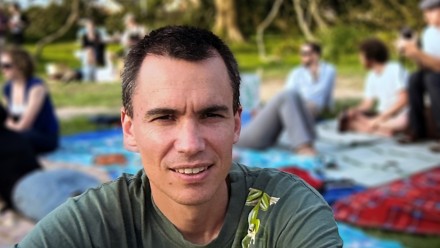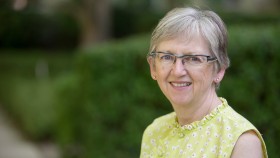Live well, age well
Share
On 16 March the Centre for Ageing, Health and Wellbeing (CRAHW) partnered with Alzheimer’s Australia (ACT) to present a public seminar aimed at carers, consumers, and health professionals to bring people up-to-date with current research on dementia and dementia prevention.
The event was part of Brain Awareness Week (14 – 21 March) which is designed to help people to become more informed about maintaining a healthy brain in order to age successfully and with a meaningful quality of life. More than 60 people gathered at the Federal Gold Club, Red Hill, ACT, to listen to the presentations.
Dr Anil Paramadhathil, Director of Geriatric Medicine with Rehabilitation, Aged and Community Care at the Canberra Hospital, was MC for the morning, and opened by advising that Canberra has a population of 400,000 and that 3 people a week are diagnosed with dementia.
He emphasised that dementia is not a normal part of the ageing process, and at the end of the presentations highlighted the fact that vibrant research sometimes raises more questions than it answers, but that these questions are crucial to learning more about how to prevent dementia in the future.
CRAHW academic staff, led by Professor Kaarin Anstey, approached the topic of dementia and dementia prevention, carefully pitched to a curious and informed audience, on new developments in research in five ways.
- Professor Kaarin Anstey: Ticking off dementia prevention; what do we know and where are we going with prevention? Professor Anstey highlighted that there is an increased prevalence of dementia because we are living longer and therefore more people are developing dementia; so far there is no pharmacological ‘magic bullet’ to prevent dementia; the research focus therefore needs to be on prevention through lifestyle factors in addition to cure.
- Dr Kim Kiely: Separated from things and people: making sense of the links between sensory loss and dementia. Why are people with hearing and sensory loss susceptible to developing dementia, and can anything be done about it?
- Dr Diane Hosking: Diet and dementia risk: what’s on your plate? A healthy, well-balanced diet and physical exercise, can help to stave off dementia – and a warning about dietary supplements, especially in the aged population.
- Dr Sarang Kim: Squashing stigma: the elephant in the room. There are three types of stigma. Each has negative effects on people living with dementia and their carers. Stigma can be reduced through education, protest, and contact.
- Dr Moyra Mortby: Living with dementia: understanding behavioural problems. Behavioural and Psychological Symptoms of Dementia (BPSD) occur frequently in people with dementia, and impact carers and consumers. With early recognition, they can be treated.
In essence each CRAHW researcher presented in a holistic way, what is a holistic problem, because current research shows that there are no single defining risks that predispose anyone to developing dementia. Rather there are several risk factors, which in general relate to living a less than healthy lifestyle and having chronic (sometimes preventable) disease.
The message is for people to eat well, exercise their minds and bodies, and help themselves to live a long and fulfilling life free of dementia, but that there are treatments available to assist carers and consumers when dementia is diagnosed. Starting to live well from your 40s onwards is a great step forward since the pathology of dementia can start decades before first symptoms occur.
Readers can assess their own risk of developing dementia by using the self-help online tool: ANU-ADRI. The ANU-ADRI is an evidence-based online questionnaire, developed by CRAHW at ANU. It examines exposure to lifestyle and health factors (including physical activity) that are known to be associated with an increased risk of the development of Alzheimer's disease.















